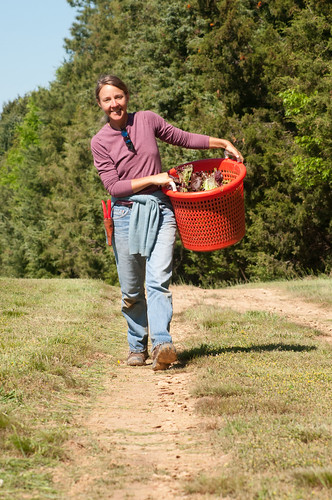Organic gardening can be an excellent way to save money and eat fresh, delicious fruits and vegetables; however, it also comes with a fair share of problems and frustrations. One of the main problems that one might encounter is pest control. There are a lot of things you need to take into consideration, especially if you want to use safe and organic techniques.
Organic pest control may seem like a contradiction, but it is not. This involves combining preventive methods as well as supporting the natural eco-system. If you are interested in organic gardening, it is also important to learn how to control the pests in your yard and garden without using chemical insecticides or pesticides. It is crucial to understand that complete annihilation is not the answer in controlling these unwanted creatures.

Why Should You Use Organic Pest Control Techniques?
As a gardener, you need to understand that a healthy garden also needs to have insects. They are an important part of the ecosystem and must not be completely eradicated. Insects and bugs serve as food for lizards, birds, and wildlife as well as assist in the pollination process. They also help break down the nutrients found in the soil, compost, and become nutrients themselves once they die. With that said, completely eradicating them from your organic garden won’t be such as good idea. It is best to simply control them to avoid a full-blown infestation.
When controlling these insects and bugs, you need to avoid using chemical pesticides since these products can eliminate the nutrients produced by plants and vegetables. Chemical pesticides also eliminate beneficial soil microbes which will result to an unhealthy environment. Lastly, long exposure to these toxic chemicals may lead to health problems, such as cancer, alzeimer’s, and fertility issues. If you want to properly control the insects, bugs, and other pests in your organic garden, you can try a more natural approach.
Natural Pest Control Techniques
Companion Planting: This is a crucial technique in organic gardening. This method involves using plants that have natural properties which help others grow as well as deter pests. The plants’ natural properties will also help increase the production in the garden. Here are a few of the most common companion plants:
- Basil: This plant can be planted alongside tomatoes to improve its production as well as its flavor. Basil is also a good companion plant for peppers. It is also said to successfully repel mosquitoes due to its scent.
- Chamomile: This is a wonderful companion for cucumbers, onions and cabbages. It also attracts beneficial insects that can help get rid of harmful pests, insects, and bugs.
- Catnip: This is an herb which is great for squash and cucumbers. It also helps repel bugs and aphids. You can also use its dried leaves to create your own pest control spray in your organic garden.
- Dill: This plant can improve the flavor of cucumber lettuce and cabbages. It also repels pests found in the garden.
- Marigolds: You can plant marigolds throughout your garden to repel mosquitoes, flies, and other stinging insects.
- Sunflowers: These are another excellent companion plants and can add aesthetic appeal to your organic garden while keeping aphids and other bugs at bay.
Powdered Kelp Solution: Aside from companion planting, you can also create a natural pest control spray, such as creating a solution from powdered Kelp. This solution can repel Japanese beetles and aphids while nourishing the plants in your garden. You can spray the solution once a week or before infestation times.
Lemon Balm Tea: This natural solution can keep squash bugs and aphids away from your garden. You only need to spray your plants with lemon balm tea at least two or three times a week when necessary.
Hot Pepper And Garlic Spray: All you need are 2-3 cloves of garlic, 4 hot cayenne peppers, 2 tablespoons of vegetable oil, a tablespoon of liquid soap, and 2-3 cups of hot water. You must then blend all the ingredients together for several minutes then let it sit overnight. Doing so will help intensify its effects. The next day, you can then strain the solution with a strainer or towel and store the solution in a glass container or spray bottle. Spray the solution directly onto the plants at least once a week. This solution can successfully repel garden bugs, insects, and wildlife pests.
Citations:
Featured images:
- License: Creative Commons image source
Kris Lim is an avid gardener who shares her tips and techniques to her readers. In this article, she aims to help her readers learn more about the natural pest control techniques they can apply to their own organic garden.